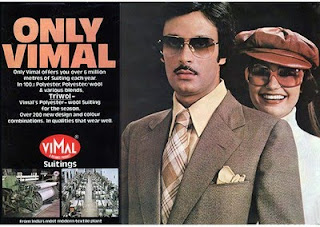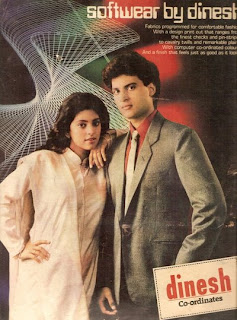1. Freecycle: Everyone has at least a few items that they don't really want but can't bear to throw away. Free cycle it. Free cycling is giving something to someone who will use it -- for free -- instead of throwing it in the garbage. (To find or start a local group, visit freecycle.org). It's simple: post a message on your local freecycle group's Web site, decide who will get your item, then arrange a pick up time. Members give and get everything from moving boxes to cabinetry.
2. Re-Use: A great way to help the environment and reduce your carbon footprint is to reuse items. There are two ways to reuse items. Reusing them for their original purpose, such as Ziploc bags, tinfoil, plastic utensils etc. and finding new uses for things you already own. By doing this you are not consuming any more of the world's precious resources. If you can't reuse something of your own, purchasing something secondhand instead of brand new is another way to reduce your consumption of resources.
3. Microwave your meals: While Microwaves do consume electricity they are between 3.5 and 4.8 times more energy efficient than traditional electric ovens. Cooking and reheating with a microwave is faster and more efficient than a stove top or oven.
4. "Green" your laundry: Get your clothes clean without all of the pollution of detergents, fabric softeners and bleaches by switching to eco-friendlier cleaners. The companies Ecover, Sun & Earth, Seventh Generation and OxyPrime make less-toxic alternatives to traditional laundry detergents. Try nonchlorine bleach such as OxyBoost or Ecover's hydrogen peroxide-based option.
5. Adjust your Thermostat: Adjusting your thermostat is free, easy and can yield big savings. Every degree you raise your thermostat in the summer will reduce air conditioning bills by about 2 percent. Lowering the temperature by one degree in winter will save you 3 percent on heating bills. Regular maintenance and a tune up every two or three years will keep your heating, ventilation and air conditioning, or HVAC, system operating efficiently, saving energy and money. A programmable thermostat -- excellent for a family that spends a good part of the day at work or school
6. Switch to cold water: Almost 90 percent of the energy used to wash clothes is used to heat the water. Save money and energy. Wash your clothes in warm or cold water, instead of hot, using a detergent formulated for cold-water use.
7. Have a Backyard or terrace? ..then Line-dry your clothes: Dry your clothes on a laundry line..just the way grandma used to rather than throwing them in the dryer. Clothes dyers are the third-largest energy users in the home, behind the refrigerator and washing machine. It may take longer but it dries it just the same. Already have a dryer?..save it for a rainy day...while the sun is bright and shinning let that dry your clothes.
8. Stop the junk mail: Each year, 100 million trees are cut down and turned into junk mail, with Americans receiving a total of 400 million tons of it every year. Earthworks Group, an environmental consulting firm, said cutting out junk mail is one of the most effective things people can do to reduce pollution. Don't just let it keep coming...get on the phone and make it known that you want off their mailing lists.
9. Switch to CFLs.: Compact fluorescent bulbs use 75 percent less energy than incandescent bulbs and last up to 10 times longer. They're more expensive than traditional light bulbs, but it only takes about 3 months to make up for the higher sticker price in energy savings.
10. Unplug your Appliances: Many appliances use electricity even when they're turned off. It's called a phantom load, or vampire electricity, and as much as 75 percent of the electricity used by home electronics and small appliances is used while they're turned off. The simple solution is to unplug small appliances and electronics when you aren't using them. Or, plug them into a power strip and turn the power strip off when you aren't using those items.
11. Run your Dishwasher FULL: You'll save up to 20 gallons of water per load, or 7,300 gallons a year. That's as much water as the average person drinks in a lifetime. And don't pre-rinse if your dishwasher can handle it.
12. Don't preheat: Don't bother if you are broiling, roasting or baking a dish that will cook for an hour or more. Don't preheat for more than 10 minutes for breads and cakes. And when roasting meats or baking casseroles, turn off the oven 10 minutes to 15 minutes before cooking time runs out; food will continue to cook without using the extra electricity.
13. Don't let the water run while you brush: Turn off the tap while you brush your teeth. You'll conserve up to five gallons of water per day -- which could add up to 1.5 billion gallons that could be saved across the country each day -- more than enough for all of New York City.
14. Filter Instead of Buying Bottled: Buy a water filter for your kitchen faucet and put to good use yet another way to do away with those plastic water bottles that are clogging landfills and burning up energy in recycling plants. About 1.5 million tons of plastic are used on the bottling of 89 billion liters of drinking water each year.
15. Use low-flow water devices: Wherever you use water, there's a low-flow device to fit it -- from hose nozzles, to showerheads, to faucet aerators. Handy products, such as the WaterMiser Waterbroom, use water and air pressure to remove dirt from outdoor surfaces, reducing water use by up to 60 percent.
16. Watch the Watts: Gadgets such as the Kill-A-Watt and the Watt Minder help you find the biggest energy users in your home. Plug an appliance into one of these devices and it will tell you how much energy it uses per hour, month, or year, and how much it's costing you.
17. Clean air filters: Check air conditioning filters monthly to either clean or replace them. This will help the unit run more efficiently. Better yet: buy a permanent filter that can be washed and re-used. This will save you money over the long run and keep all those disposable filters out of landfills. If your unit is outdoors, check to make sure the coils are not obstructed by debris, plants or shrubs.
18. Use Natural fertilizers: Natural fertilizers actually cost less, and using fewer chemicals can save you money and reduce the level of pollution in local waterways and around your home. To boost the health of your lawn, add clover, as it naturally fertilizes the soil and is drought-tolerant. Let the lawn grow a little longer before cutting it -- longer grass chokes out the sunlight weeds need to grow.
19. Know when to replace your appliances: If your furnace, air conditioner or other major appliances are more than 10 years old, it may make sense to replace them with newer, more efficient models. Buying newer, Energy Star appliances can save you some money per year as well.
20. Make your own cleaners: Household chemicals, including some cleaners, contain volatile organic chemicals, which contribute to indoor air pollution and may cause disease. A cost-effective way to make your home greener is to make your own household cleaners. Many homemade cleaners use non-toxic ingredients and clean just as well as commercial cleaners.If making your own cleaners isn't an option, look for cleaners carrying the Green Seal. Green Seal is a nonprofit organization that certifies products based on their environmental impact, biodegradability and other factors.
21. Fresh Vs Canned Food: Whenever possible, limit purchases of canned fruit and vegetables and substitute fresh. The process involved in canning fruit is at least 10 times more energy intensive than picking fresh fruit. If every U.S. household replaced just one pound of canned or jarred fruit with one pound of fresh fruit during each of the three summer months, the total energy saved could operate the kitchen appliances of over 21,000 households for an entire year.
22. Paper or plastic? Neither: Use reusable cloth or canvas bags. The hard part is remembering to take them with you. But they are sturdier and carry a heck of a lot more stuff. Have a couple of sets and leave one in your vehicle at all times. Paper may be slightly better than plastic because it holds more per bag, but baggers also frequently double bag. Paper bags can be easily reused in many forms and have a better chance of being recycled. If you happen to get a few plastic bags, reuse them as much as possible until they can be used no more.
23. Buy Organic and foods produced locally: Organic products are grown without synthetic pesticides and herbicides and processed without the addition of synthetic chemicals. Some organic options are more expensive. Other products, like cereal and some fruits and vegetables, are very competitive. The secret: Compare prices, buy produce in season and don't buy more than you can use. Locally grown food is often less expensive. In addition, you'll be supporting the local farmers, many of whom are using more earth-friendly farming methods. Buying local foods can reduce the amount of petroleum consumed to transport your dinner by as much as 95 percent.
24. Research fish choices before you buy: If you can read a paper, you already know that the oceans are being overfished. So skip the varieties with dwindling populations or the ones that are targets for poaching or overfishing. Limit your exposure to mercury and other toxins by choosing smaller varieties of fish and avoiding some farm-raised options.
25. Support 'green' businesses: Many manufacturers, stores, restaurants and coffee houses are greening their businesses with strategies like adopting large scale recycling programs; using sustainable forms of energy, such as solar or wind power; reducing waste; and committing to the use of organic, locally grown or eco-friendly products. By spending your money selectively, you reward greener behavior and encourage other companies to become similarly competitive. And, in many cases, there is no extra cost to consumers.
Ways to Go Green at Work or School
26. Turn off the lights: When leaving the office or classroom, a simple flip of a switch conserves energy. Yet a surprising number of empty offices, conference rooms, restrooms and lobbies are lit for hours each day (and night) while going unused.
27. Use electronic communications: Submit and distribute assignments and reports electronically. E-mailing a document allows for easier, from-anywhere reference for a teacher or colleague -- and provides proof that it was sent on time. For in-progress documents, electronic transmission also make it easy to collaborate.
28. Fax smart: Sending faxes directly from the computer avoids using paper altogether. But if a traditional fax is the only option, either avoid using a cover page or create a reusable cover by laminating the page and using an erasable marker. In addition, avoid the automatic activity report function to save another page. It may be "just a single sheet" of paper, but if everyone followed these green rules, it would really add up.
29. Pack a waste-free lunch: Eliminate plastic bags, plastic utensils, disposable containers, paper napkins and those brown bags. Instead use a lunchbox, reusable drink container, cloth napkin and silverware. Find odd pieces of used silverware at a second-hand store so you don't lose parts of your good set. Sandwiches, fresh fruit, vegetables and treats packaged in reusable containers are healthy alternatives to cafeteria and prepackaged foods. They can also be bought in larger quantities, saving money and packaging.
30. Teleconference, don't travel: With hotel, airfare, local transportation, meals, entertainment expenses and tips, business travel certainly adds up. Today's technology expands the definition of face-to-face contact, making a quick meeting with a client or colleague across the country, or the world, possible. Online professional development options abound, as well -- from Web seminars to entire conferences being held virtually.
31. Office & Desk supplies: Keep reuse in mind with desk supplies. Refillable pens and pencils help reduce waste, and items such as paper clips, folders and binders can be saved and reused. The key is staying organized, collecting used supplies of like kinds in the same spot and keeping them within easy reach.
32. Save packing materials: In other words, what comes in should go back out. When having to buy boxes and other packing supplies, look for products made from recycled material or those that are biodegradable.
33. Use recycled paper: Compared to other paper, it takes a lot less energy and water to make. And thanks to increased demand, manufacturers have been able to match quality and performance. Speaking of paper, it's got two sides, so when possible, use them both.
34. Use recycled paper: Pens are often tossed into the garbage and not recycled or reused. Their components and packaging are made from nonrenewable resources and can contain environmentally damaging chemicals. Pen refills cost as little as $1 each, which is almost the same as a new disposable pen.
35. Commute smart: That means walking or biking to work or the classroom if practical, or the ever-promoted public transportation option.
36. Tap the tap: Encourage your school or workplace to get a filtration system for the faucet instead, and it'll be part of the solution rather than part of the problem. Besides, many bottled-water companies use tap water anyway.
37. Carpool: Carpooling saves time and money. On a typical day, the average mother with school-age children spends 66 minutes driving -- taking more than five trips to and from home and covering 29 miles. The average commuter carpooling every day would save 500 gallons of gasoline, and 550 pounds of poisonous exhaust emission every year.
38. Switch Off Your Computer: The "sleep mode" reduces energy use by 60 percent to 70 percent, the EPA estimates. As for turning computers on and off, despite a popular misconception, this won't harm the equipment. It will, however, save energy as long as the computer will be inactive for 16 minutes or more. If your job doesn't require constant computer use, break the habit of turning it on first thing and keeping it on all day.
39. Turn Off your Computer Monitor: Turn off your computer's monitor when you're not using it. Screen savers only save the screen from having a pattern burned into it. Energy saving options in Windows still use energy - switch it off (the switch is likely accessible and easy to find!)
40. Think green on computers: When considering a computer brand and model, seek products created for reduced toxin use, that use recycled materials and that prioritize life-cycle management issues. The Energy Star symbol is an easy way to identify energy efficient products, but electricity isn't the only factor to consider.
Leisure & Vacation Green Tips
41. Drink tap water at restaurants: Tap water is more strictly regulated than bottled water and there's no need to add tons of plastic and glass bottles and jugs -- about 60 million a day -- to landfills. And recycling them takes energy, too.
42. Download music: Download tunes instead of purchasing them at the store. Each month, more than 45 tons of CDs become obsolete -- outdated or unwanted -- and end up in landfills.
43. Rent, don't buy, movies: One hundred thousand DVDs and CDs are thrown away each month. So you won't be contributing to the trash pile.
44. Subscribe to online newspapers: Cancel your paper subscription altogether and get your news -- often from the same newspaper publisher -- online. Each year, 10 million tons of newspapers are tossed into landfills and aren't recycled. If just half of these were recycled, it would save 75 million trees
45. Turn off your entertainment center: Electronics, including TVs, cable boxes, DVD players, computers, music systems and gaming consoles, consume up to 40 percent of their full operating power when switched "off" or left in standby mode. They also continue to produce heat, which increases home cooling loads. Turn them completely off all at once with a common surge protector. They'll last longer and you'll reduce your electric bill.
45. Take an Eco-tour Vacation: For a conscientious vacation, try an eco-tour. These earth-friendly getaways seek to enhance awareness of our natural world, promote conservation, minimize impact and provide a positive experience for guests and hosts. Some even put you to work improving the local ecosystem.
46. Seek 'green' lodging: Business travelers and beach-bound hedonists can decamp in "green" comfort, thanks to the growing number of urban hotels, luxury resorts and lodgings that are minding their carbon footprint. For an extensive list of hotels verified by readers, visit EnvironmentallyFrie ndlyHotels. com.
47. Use rechargeable batteries: While it's true that rechargeable batteries cost more to purchase, you'll save money over the long run. A single rechargeable battery can replace up to 1,000 single-use alkaline batteries over its lifetime. Most rechargeable batteries can be recharged up to 1,000 times.
48. Buy soft drinks in a cup: Whenever possible, buy soda from a fountain in a paper cup instead of in a can or plastic bottle. You'll reduce the amount of aluminum cans and plastic bottles wasted. More paper (48 percent) is recycled and recovered to make new products than aluminum soda cans (43.9 percent) or plastic soda bottles (25 percent).
49. Use digital cameras: Some 686 million rolls of film are processed each year and the solutions used the make the prints often contain hazardous chemical that require special treatment and disposal. Digital cameras continue to become more affordable and the savings on film -- depending on how many photos you take -- can be significant.
50. Get a truly 'green' lawn: One hour of mowing your lawn with a gas-powered mower produces as much pollution as driving your car for four hours. For a truly "green" lawn, consider using a push mower or hiring a lawn service that uses solar-rechargeable electric mowers.
51. Share your swim space: Swim at your community pool or fitness center instead of installing a pool of your own. If you already own a pool, consider allowing your neighbors access and share the expenses. A pool's circulating pumps cost as much to run as your home air conditioning system.
52. Buy tickets online: Airline, movie and event tickets can be purchased online or by telephone and printed at home and you'll save time and paper waste. Print-at-home tickets use plain copy paper, which is easier to make into recycled paper than the paperboard used for printed tickets -- and the ink and magnetic strips make printed tickets even more difficult to recycle.
53. Reuse hotel linens and towels: You probably don't change your sheets and towels every day at home, so why do it while you're away? One towel change per week ought to be plenty.
54. Pack light: Every additional 10 pounds per traveler requires an additional 350 million gallons of jet fuel per year, which is enough to keep a 747 flying continuously for 10 years.
55. Research your trip online: Print out only the pages or maps you'll actually need. Close to 1 million guidebooks are printed annually, but just 18 percent get recycled. Map paper is particularly difficult, if not impossible, to recycle because of all the ink used. You'll save time, money and paper waste. Use old maps as gift wrap and you'll save a bundle.
56. Rent hybrid cars: Try a hybrid or more fuel-efficient car. A hybrid rental can go three times as far as a standard sedan on a single tank of gas.
57. Refill water bottles: Use a refillable bottle or thermos or canteen when you travel.
58. Give small gifts: Gift cards, concert tickets, restaurant certificates and movie vouchers are great alternatives to holiday presents heavily packaged and wrapped in expensive and hard-to-recycle paper. You'll also reduce the time, stress and energy associated with traffic, crowds and long checkout lines. How many gifts do you give a year? If you average $2 for wrapping paper, ribbon and labels for each, think of how much you can save, not to mention the recycling costs.
59. Get the holiday LED Lights: Next time you replace your holiday lights, save both money and energy by choosing LED types. What's more, with a 100,000-hour life span, your LED lights could last until the next century.
60. Go for glass Instead of Cans: The energy required to produce a single 12-ounce aluminum can from virgin ore is enough to produce nearly two 12-ounce glass bottles. So the next time you buy a six-pack of beer, opt for glass bottles over aluminum cans.
61. Reduce sports gear: Consider renting or leasing sports equipment on a per-use basis as opposed to wasting money and cluttering up your garage with stuff you likely won't use more than once or twice a year. Or purchase used equipment. You'll reduce the energy needed to produce an additional piece of equipment and decrease the amount of waste eventually sent to the landfill.
Green Health & Beauty Tips
62. Use bars of soap versus liquid wash: It's less expensive, and it saves packaging waste. Not to mention that body wash is primarily water, so the fuel costs for transporting it are higher because it weighs more.
63. Skip the treadmill: If the weather's right, consider giving the treadmill a rest and taking your walking or jogging routine outdoors.
64. Slash trash: Cut waste by selecting products with less packaging. Three ways to do it: Choose products that come with minimal packaging, buy larger sizes, or buy refills or in bulk which typically have less packaging.
65. Get two for one: Consider using a two-in-one shampoo and conditioner instead of buying each separately. If one in seven U.S. households replaced its shampoo and conditioner purchase with a single two-in-one bottle, the amount of plastic saved per year could fill a football field 27 stories high.
66. Avoid pore pluggers: When you buy deodorant, try to avoid antiperspirants, which use aluminum salts to seal up your pores. In addition to being a potential health toxin, aluminum takes a tremendous amount of energy to mine. If you buy one stick of aluminum-free deodorant, the energy saved could power your laptop for 30 minutes.
Green Car Tips
67. Tyre Pressure: Keep the tires at the correct PSI (air pressure) at all times: driving around without proper air in the tires wastes gas.
68. Air conditioning and heat: Minimize the use air conditioning and heating when possible, roll down those windows and breathe some fresh air when the weather permits.
69. Weight matters: Having extra weight(tools, sports equipment, etc.) in the car hurts gas mileage.
70. Gas-saving driving: If you must drive, at least ensure that you're using less gas by doing so. Some common recommendations to do so: ease up on the gas pedal and brake pedal, be sure your tires are inflated and your engine is running smoothly, don't have your car on idle for too long, and get a fuel-efficient car.
Other Tips
71. Get your bank statement electronically: If you're worried about computer hackers, don't. Most banks send you an e-mail with a link to a secure Web site where you can check your balance
72. Cancel the canceled checks: If you still get paper bank statements that include canceled checks, at least cancel the canceled checks. You can reconcile your account just fine without all those extra slips of paper.
73. Donate clothing and household goods: Donate clothing and household goods to the environmental nonprofit of your choice. Many charitable groups, including those dedicated to saving the planet, will take such gifts.
74. Direct-deposit your pay: Most employers and banks can handle your request. In fact, they probably prefer the method. Your paycheck will always be in the bank, not in the mail, and there's no environmentally wasteful paper paycheck to worry about.
75. Pay your bills electronically: Once you're online looking at those charges, it just takes a couple extra clicks to make the payment.
76. Buy a hybrid vehicle: The advantages of these combination gas/electric autos have become well-known since pump prices have stabilized around $3 for the last couple of years.
77. Invest in 'green' funds: Ramp up that good eco-investing feeling by choosing stocks or mutual funds that that buy environmentally friendly assets. This type of investing goes beyond the usual eco-suspects, such as organic farms or environmental services firms. Green investing also means buying into mainstream companies that encourage sound environmental policies, such as energy efficiency, renewable energy and green building.
78. Skip the receipt at the ATM: Most of the time you just take a glance at it and tear it up. Why not see your balance on the ATM itself instead of requesting a receipt.
79. Use cloth diapers: Another huge thing a parent can do to live green is to use cloth diapers as opposed to disposables. Disposable diapers take up an enormous amount of this countries landfills, don't break down easily, cost a lot of money, put chemicals directly on the bottoms of our children, and in many cases delay potty training.
80. Go Solar: Pick up some solar chargers, generators, or other solar powered tools.
81. Compost waste: Compost waste if you have a garden, saving on fertilizer cost and giving your plants a treatment they'll love.
82. Buy only what you need: Buy what you need when you're shopping. The supermarkets exist to tempt us into buying more than we need with constant special offers, designed to load up our houses with unnecessary extras. Take a list when shopping and stick to it. You'll throw less food away and have a clearer kitchen as well as a clearer conscience.
83. Other alternative energy sources: Thermal heating, photovoltaic cells, solar shingles, hydro power (water), Wind power (wind mills and wind turbines), can also take your house of the electric grid and gas line without hurting the environment.
84. Go For Natural Fibers: Buy products with natural fibers, like cotton and wool, that are naturally fire resistant.
85. Dispose Properly: Dispose of old paint, oils & chemicals properly- Never put paint, oils, batteries or antifreeze in the trash! Use proper toxic disposal sites.
86. Look for PVC-free Toys for your Kids: PVC (aka polyvinyl chloride) seems to be everywhere we look. Some beach toys, teethers, dolls, and even (gasp!) rubber duckies are cheaply manufactured with the environmentally dubious material. A dioxin-producing powerhouse, PVC releases toxins into the environment all the way through its life cycle from manufacturing to disposal.
87. Donate, not discard: Don't throw something away just because you've outgrown that particular style—thrift stores such as Goodwill or the Salvation Army will be more than happy to take items in serviceable condition. You're also likely to find takers by posting on Craig's List or Free cycle. Call it a win-win-win situation for you, the new owner, and the earth.
88. Grow Your Own Food: Start a small vegetable garden. Even if you don’t have a garden at all, herbs and salads can be grown in a window box, and sprouting seeds is an easy way to grow some fresh food too. Complete self-sufficiency might not be realistic, but any food you can grow at home will be an important contribution to cutting food miles, and reducing our dependence on fossil fuels. It will also taste delicious.
89. Home Brew your Coffee: The local café is great. It’s got your friends, good food, free wireless. But if you think you can be greener in your own kitchen, give it a try. When you do it at home you know where the beans and leaves are coming from and also where they go when they’re spent. Plus, you can’t forget your mug, you can choose organic milk, and never toss out another paper sugar packet. Try a bit of quick math on the cost savings of making your morning cup-o-joe at home.
90. Buy vintage or used: People unload clothes for all types of reasons, and you know that adage about trash and treasure. From Oscar-worthy vintage dresses to Free cycled denim, you can likely find the piece you’re looking for second hand. You’ll be giving a cast-off garment a second life, and possibly supporting charitable work in the process.
91. Compost the roast: Tea leaves and especially coffee grounds make outstanding compost. Coffee’s high nitrogen content has made it a fertilizer of choice since days of yore. Composting leaves and grounds helps keep organic waste out of landfills, makes great soil, and keeps waste baskets dry. If you don’t have a heap to toss it on, just spread coffee grounds on the top of your plants’ soil.
92. Clean up your Pets poop: Scoop up your doggie doo in biodegradable poop bags so your buddy’s No. 2 isn’t immortalized in a plastic bag, while deep-sixed in a landfill somewhere for hundreds of years. Cat owners should avoid clumping clay litter at all costs. Not only is clay strip-mined (bad for the planet), but the clay sediment is also permeated with carcinogenic silica dust that can coat little kitty lungs (bad for the cat). Eco-friendly cat litters avoid these problems; a happy cat is a cat that doesn’t claw your face off.
93. Buy Recycled: The essence of recycling is the cyclical movement of materials through the system, eliminating waste and the need to extract more virgin materials. Supporting recycling means feeding this loop by not only recycling, but also supporting recycled products. We can now find high recycled content in everything from printer paper to office chairs.
94. Harvest rainwater: Adding a rain barrel is an inexpensive and effortless way to capture mineral- and chlorine-free water for watering lawns, yards, and gardens, as well as washing cars or rinsing windows. By harnessing what's literally raining from the sky, you'll not only notice a marked dip in water costs, but also a reduction in storm water runoff, which in turn helps prevent erosion and flooding. Pop a screen on top of your barrel to keep out insects, debris, and bird missiles, and make frequent use of your water supply to keep it moving and aerated.
95. Recycle your water: If you're a homeowner, consider rearranging your plumbing so that rainwater or wastewater from your shower and tub is used to flush your toilet. If you have a garden, water it with leftover bathwater or dishwashing water (as long as you use a biodegradable soap).
96. Packaging Material: Styrofoam peanuts, those non-biodegradable, everywhere-flying, petrol-based, little packaging devils can be brought back to most packaging stores for reuse as long as they’re clean and dry.
97. Buy only Certified sustainable wood: Whether a piece of furniture is made from wood, cloth, metal, plastic, or whatever else, there are earth-friendly options.
98. Low-toxicity furniture: When you buy a piece of furniture, bring it home, and set it down in a room, it doesn't just sit there. No matter what it's made out of, chances are, it's off gassing (or releasing substances into the air). Almost everything off gasses, which isn't necessarily bad, but synthetic materials or those treated with synthetic substances can off gas chemicals which are toxic. Everyone should be conscious of the kinds of chemicals they bring home, but especially if you have kids, pets, or other family members who are low to the ground and prone to licking things.
99. Find the Time to Volunteer: Your first reaction to the thought of volunteering your time may well be: what time? But you can’t help others until you help yourself. So ask yourself the following: Do you need more time for fitness? Then volunteer to do something active. Don’t over-commit, but ask yourself how volunteering could be the value-added time you will anyways dedicate to goals of your own. Worried this approach seems selfish? Don’t! The most effective volunteers are those who do things that match their pace.
100. Put Your Money to Work: So you really, really don’t have the time? Or maybe you are volunteering already and see clearly that there is no point in dying rich? Then consider offering some funds toward good green causes. To select where your money goes, we suggest using the same techniques mentioned above for choosing an organization with which to spend your time.
101. Spread the Word: Bring awareness to wasteful people around you not only by telling them to Go Green but by leading by example. By being Green in your life and showing people how easy it can be...they gain confidence that they can follow suit. Suggest ways that they could be more eco-friendly and point out how much they save.






















































